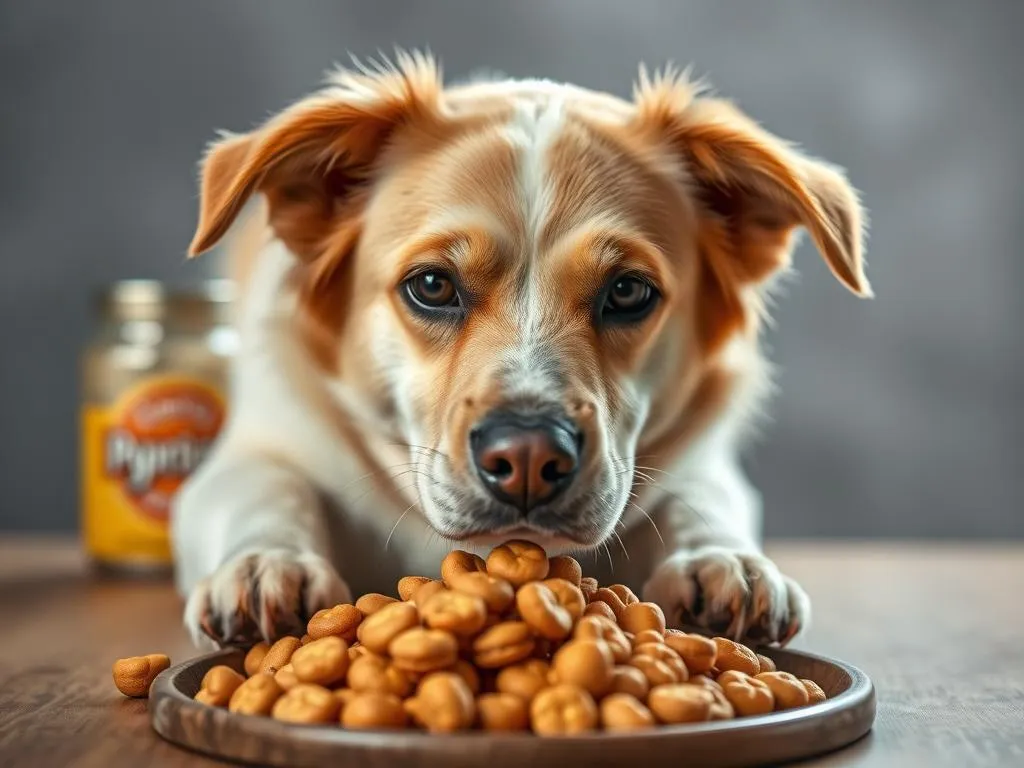
Introduction
Dog nutrition is a critical aspect of pet care that influences a dog’s overall health and well-being. Proper nutrition ensures that dogs receive the necessary nutrients to thrive, while poor dietary choices can lead to a variety of health issues. Unfortunately, there are many misconceptions surrounding dog food, particularly regarding protein levels and their effects.
The purpose of this article is to delve into the relationship between high protein dog food and diarrhea. By exploring this connection, we aim to provide insights into what constitutes a balanced dog diet and how to make informed choices that support your dog’s health. Understanding dog nutrition is crucial, as the implications of poor dietary practices can lead to long-term health problems, affecting your furry friend’s quality of life.
Understanding Dog Nutrition
Basic Nutritional Requirements for Dogs
Dogs, like humans, require a balanced diet to maintain optimal health. Essential nutrients include:
- Proteins: Vital for building and repairing tissues.
- Fats: Provide energy and support cell function.
- Carbohydrates: Serve as an energy source and aid in digestive health.
- Vitamins and Minerals: Necessary for various biochemical processes.
- Water: Essential for hydration and overall health.
Each nutrient plays a distinct role in your dog’s well-being, making it crucial to provide a diet that covers all these bases.
Types of Dog Food
Dog food comes in various forms, each with its own pros and cons. Here are the primary types:
- Dry Dog Food (Kibble): Convenient and often more affordable, kibble can be nutritionally balanced but may lack moisture.
- Wet Dog Food (Canned): Contains higher moisture content, which can benefit hydration, but is generally more expensive.
- Raw Diets: Some owners opt for raw food diets, believing they are more natural; however, these require careful handling and balance.
- Home-Cooked Meals: Preparing meals at home allows for full control over ingredients, but requires knowledge to ensure nutritional adequacy.
Protein Sources for Dogs
When discussing high protein dog food, it’s essential to recognize the sources of protein available:
- Animal-based Proteins: Meat and fish are excellent sources, providing complete proteins that are easily digestible.
- Plant-based Proteins: Ingredients like soy and peas can be used, but they may not offer the same digestibility as animal proteins.
Understanding the digestibility of various protein sources is vital for selecting the right food for your dog.
The Role of Protein in a Dog’s Diet
Importance of Protein
Protein is a cornerstone of a dog’s diet, serving multiple functions:
- Building and Repairing Tissues: Essential for muscle development and recovery.
- Source of Energy: Provides fuel for daily activities, especially in active dogs.
- Supporting Immune Function: Plays a role in the production of antibodies and other immune responses.
Recommended Protein Levels
The necessary protein intake varies based on a dog’s age, size, and activity level. Here are general guidelines:
- Puppies: Require higher protein levels (around 22-32% of their diet) to support rapid growth.
- Adult Dogs: Typically need around 18-25% protein, depending on their activity level.
- Senior Dogs: May benefit from moderate protein levels (around 16-20%) to maintain muscle mass without overburdening the kidneys.
Understanding these requirements helps in choosing the right food to keep your dog healthy and happy.
High Protein Dog Food: Benefits and Risks
Benefits of High Protein Diets
High protein diets can offer several benefits, particularly for specific types of dogs:
- Muscle Development and Maintenance: Essential for athletic and working dogs to sustain high energy levels and muscle mass.
- Suitable for Active Dogs: Dogs that engage in regular exercise may thrive on higher protein to support their energy needs.
- Potential Weight Management Benefits: High protein diets can promote satiety, helping to manage weight and prevent obesity.
Risks Associated with High Protein Diets
While there are benefits, there are also potential risks tied to high protein consumption:
- Digestive Issues and Diarrhea: Some dogs may struggle to digest high protein levels, leading to gastrointestinal upset.
- Kidney Strain: Breeds predisposed to kidney issues may suffer from additional strain when consuming high protein diets.
- Nutritional Imbalances: Solely focusing on protein can lead to deficiencies in other essential nutrients.
It’s vital to weigh these factors carefully when considering a high protein diet for your dog.
Can High Protein Dog Food Cause Diarrhea?
Common Causes of Diarrhea in Dogs
Dog owners often encounter diarrhea as a common issue, which can stem from various causes, including:
- Dietary Indiscretion: Dogs are known for scavenging, and sudden changes in diet can lead to digestive upset.
- Food Intolerances and Allergies: Some dogs may react negatively to specific ingredients in their food.
- Sudden Diet Changes: Rapid transitions to a new food, especially one with higher protein, can shock a dog’s digestive system.
How High Protein Diets Contribute to Diarrhea
The connection between high protein dog food and diarrhea can be attributed to several factors:
- Digestive Sensitivity to High Protein Levels: Some dogs may not be able to process high protein effectively, resulting in gastrointestinal distress.
- Overconsumption of Protein: Excessive protein intake can exceed the digestive capacity of certain dogs, leading to diarrhea.
- Incomplete Protein Digestion: If protein is not properly digested, it can ferment in the gut and lead to digestive issues.
Identifying Symptoms of Diarrhea
Recognizing diarrhea in dogs is crucial for timely intervention. Symptoms include:
- Frequency and Consistency of Stools: Watery stools occurring more frequently than normal.
- Accompanying Symptoms: Look for signs like vomiting, lethargy, or loss of appetite, which may indicate a more serious issue.
If diarrhea persists, it’s essential to consult a veterinarian for further guidance.
Managing Dog Diet to Prevent Diarrhea
Transitioning to a High Protein Diet
If considering a high protein diet, it’s essential to transition gradually:
- Gradual Introduction of New Food: Start by mixing small amounts of the new food with the current diet, gradually increasing the proportion over a week or two.
- Monitoring for Adverse Reactions: Keep an eye on your dog for any signs of digestive upset during the transition.
Balanced Diet Recommendations
To maintain a healthy diet, focus on balance:
- Importance of Balance in Macronutrients: Ensure a mix of proteins, fats, and carbohydrates to meet nutritional needs.
- Inclusion of Fiber and Prebiotics: Adding fiber can help improve digestion and stool consistency, while prebiotics support gut health.
When to Consult a Veterinarian
Be vigilant about your dog’s health, and consult a veterinarian if you notice:
- Signs that Require Professional Advice: Persistent diarrhea, significant weight loss, or changes in behavior warrant a veterinary visit.
- Importance of Regular Vet Check-Ups: Routine check-ups can help identify potential dietary issues before they escalate.
Conclusion
In summary, understanding dog nutrition, particularly the implications of high protein dog food, is essential for ensuring the well-being of your canine companion. While high protein diets can offer benefits for certain dogs, they also come with risks, including the potential for diarrhea. A balanced diet rich in essential nutrients is crucial for maintaining a dog’s health and preventing digestive issues.
As a responsible pet owner, it’s important to observe your dog’s individual needs and adapt their diet accordingly. Making informed dietary choices is integral to providing your dog with a happy and healthy life.
FAQs
Can high protein dog food cause diarrhea?
Yes, some dogs may experience diarrhea when introduced to high protein diets, particularly if they are sensitive to protein or if the transition is too abrupt.
What are the symptoms of diarrhea in dogs?
Look for watery stools, increased frequency of bowel movements, and any accompanying symptoms like vomiting or lethargy.
How can I transition my dog to high protein food?
Introduce the new food gradually, mixing it with the old food over a week or two while monitoring for any adverse reactions.
Are there specific breeds that should avoid high protein diets?
Yes, certain breeds with predispositions to kidney issues may need to limit their protein intake. Always consult your veterinarian.
What is the best way to ensure my dog’s diet is balanced?
Incorporate a variety of protein sources, fats, carbohydrates, and ensure the inclusion of necessary vitamins and minerals for a well-rounded diet.









